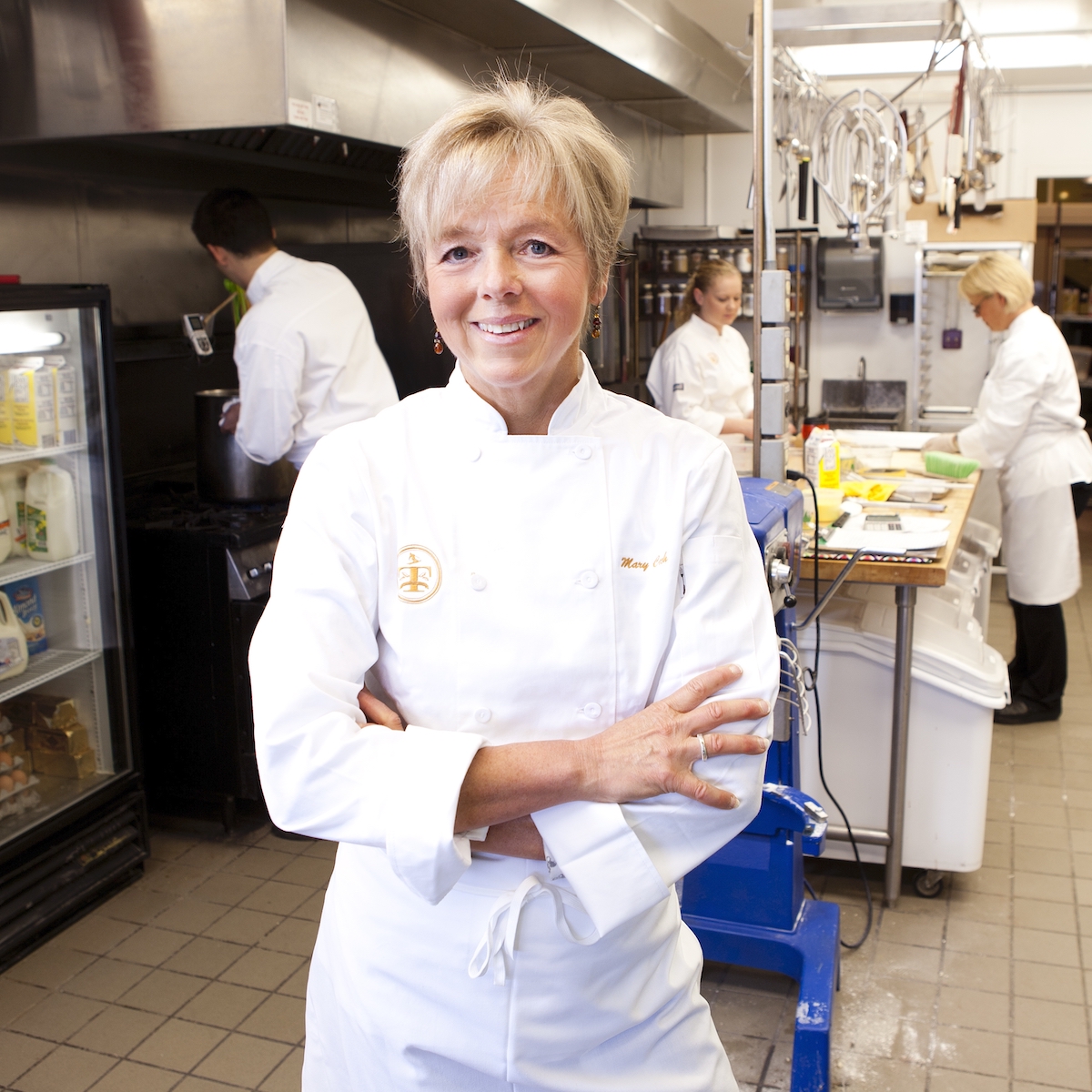The Sous Chef – Second In Command
A sous chef plays a crucial role in the kitchen. They act as the right hand to the executive chef and ensure daily tasks run smoothly.
Their responsibilities go beyond food preparation. They oversee the kitchen staff, manage inventory, and maintain quality control during service. By monitoring every detail, the sous chef ensures dishes meet the restaurant’s standards, and the kitchen runs efficiently, even under pressure.
They are the glue that holds the kitchen together. They are skilled in all aspects of cooking and know how to organize workflows to boost productivity. When the executive chef is unavailable, the sous chef steps in and makes key decisions to maintain consistency and quality.
A good sous chef is a leader and a mentor. They train junior cooks, help them improve their skills, and foster teamwork. Their ability to handle stress, multitask, and stay organized makes them essential. Without a strong sous chef, even the best kitchen can quickly fall into disarray. Their role is vital to any successful culinary operation.
The Name
Many professional culinary terms have French origins, and “sous,” meaning “under” or “beneath,” reflects the role of this position directly under the Head or Executive Chef. The sous chef acts as the chef de cuisine’s right-hand man, overseeing the hands-on preparation of meals.
History
Their role closely follows the evolution of professional kitchens and culinary hierarchy, especially in Western culinary traditions. Here is a brief look at its development:
Origins in French Cuisine: The term “sous chef” originates from French culinary terminology, where “sous” means “under” or “assistant to.” In French kitchens, particularly in the 19th century and earlier, kitchens were organized hierarchically with a clear chain of command.
Development of Kitchen Hierarchy: In traditional French cuisine, Georges Auguste Escoffier revolutionized the kitchen brigade system in the late 19th and early 20th centuries. This system formalized kitchen roles, with each position having specific duties and authority.
Role and Responsibilities: As second-in-command, the sous chef managed kitchen operations, supervised food preparation, and ensured the consistency and quality of dishes, while the head chef maintained overall authority.
Evolution and Modernization: Over time, the role evolved alongside changes in culinary practices, technology, and the restaurant industry, taking on responsibilities for day-to-day management, culinary execution, and staff supervision.
Global Influence: The sous chef and the brigade system shaped kitchen structures worldwide, influencing not just French cuisine but culinary traditions globally.
Ultimately, their history mirrors the shift from informal kitchens to highly organized teams, where each role, including the sous chef, is vital to a kitchen’s success.
Difference Between the Head Chef and the Sous
A sous chef and a head chef have distinct roles and responsibilities in the kitchen:
Head Chef (Chef de Cuisine):
The head chef leads the kitchen as the senior chef in charge. They manage kitchen operations, plan the menu, and create recipes. The head chef oversees the entire kitchen staff, including sous chefs, ensuring all dishes meet quality standards. They make final decisions on kitchen operations and menu changes and often handle administrative tasks like food ordering, budgeting, and kitchen maintenance.
Sous Chef:
The sous chef is second-in-command in the kitchen hierarchy. They assist the head chef in managing the kitchen and leading the team. The sous chef is hands-on in food preparation, ensuring recipes are followed correctly. They supervise the kitchen staff, delegate tasks, and coordinate activities during service. While they may contribute to menu planning and recipe development, their main focus is on execution. They support the head chef’s vision.
Both sous chefs and head chefs have culinary expertise and leadership skills. However, the head chef oversees the kitchen’s strategy and operations. The sous chef focuses on hands-on management and execution.
Kitchen Responsibilities:
- Assistance to Head Chef: They support the head chef in all kitchen management aspects, stepping in when the head chef is unavailable.
- Supervision and Coordination: They supervise staff during food preparation, ensuring tasks are completed efficiently and to standard.
- Training Support: They help train new kitchen staff, guiding them on techniques and procedures.
- Quality Assurance: They maintain food quality, taste dishes, and provide feedback to meet standards.
- Task Delegation: They delegate tasks, ensuring efficient distribution and timely completion.
- Team Collaboration: They foster teamwork and a positive work environment among kitchen staff.
How to Become a Sous Chef
Becoming a sous chef typically involves a combination of culinary education, hands-on experience, and the development of specific skills. Here is a general pathway to becoming a sous chef:
Culinary Education:
Many begin by attending culinary school to gain a formal education in cooking techniques, food safety, nutrition, and kitchen management. While not always required, culinary school provides a solid foundation in essential skills and knowledge.
Hands-on Experience:
Practical experience is crucial. Most aspiring sous chefs work through various kitchen positions, gaining experience in different cuisines and environments. Starting as a line cook or kitchen assistant allows them to learn kitchen operations, food preparation, and teamwork.
Skill Development:
They must develop key culinary skills such as knife techniques, cooking methods, and menu planning. They should also build leadership abilities, communication skills, and the capacity to work efficiently under pressure.
Progression in Kitchen Roles:
Advancing to sous chef usually follows years of experience in kitchen roles, during which individuals demonstrate their culinary skills, leadership potential, and ability to manage kitchen operations effectively.
Continued Learning:
They continue to refine their skills throughout their careers, attending workshops and seminars or pursuing certifications in food safety and management to enhance their knowledge and qualifications.
Networking and Opportunities:
Building a network within the culinary industry is also beneficial. Networking opens doors to mentorship, job opportunities, and career advancement.
Becoming a sous chef requires dedication, hard work, and a passion for the culinary arts. This role blends culinary expertise with leadership skills, making it a rewarding career path for those passionate about food and kitchen management.
Salary of a Sous Chef
Sous chef salaries can vary widely based on location, type of establishment (such as fine dining, hotels, or catering), level of experience, and specific responsibilities. Here are some general salary ranges:
- United States: The average annual salary for a sous chef ranges from $40,000 to $65,000 or more, depending on the region and the size and prestige of the establishment.
- United Kingdom: In the UK, sous chefs earn an average salary between £25,000 and £35,000 annually, with higher wages in upscale restaurants or hotels, especially in cities like London.
- Australia: In Australia, sous chefs typically earn between AUD 50,000 and AUD 70,000 per year, depending on location and the type of establishment.
- Canada: In Canada, sous chefs earn between CAD 40,000 and CAD 60,000 annually, with variations based on location and the culinary scene.
These figures are approximate and can vary based on experience, skills, additional benefits, and job demands. Sous chefs in high-end restaurants or with specialized expertise may earn higher salaries.















